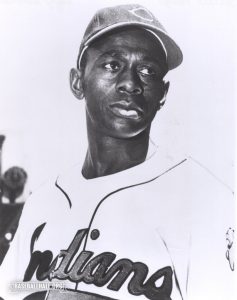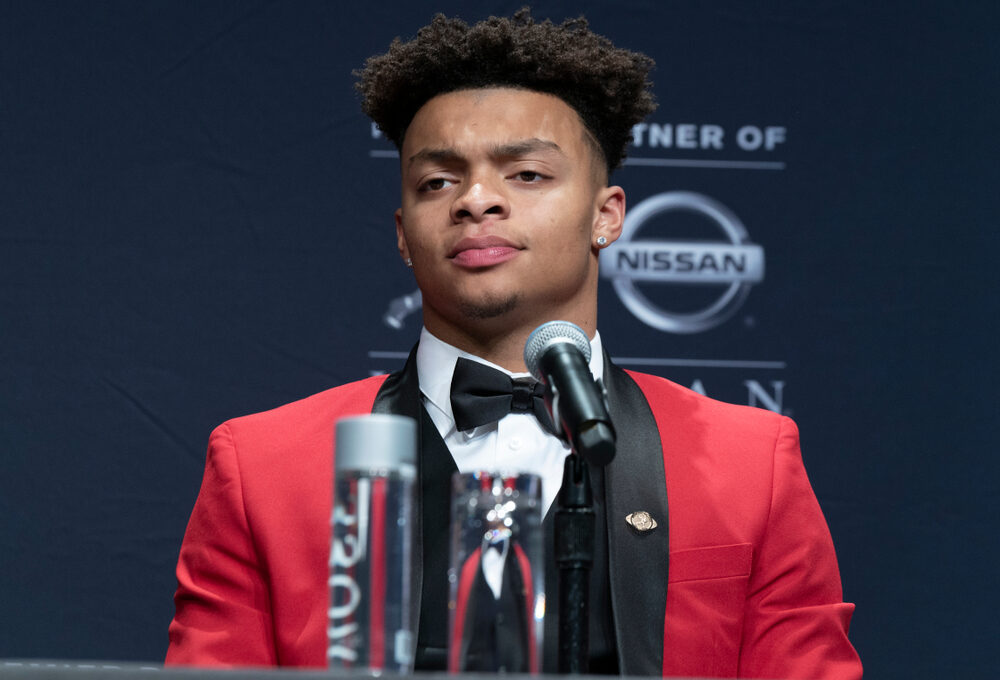Baseball’s stars of today are hoping to create their legacies during this year’s postseason. Many of the Black and Latino players competing are walking the trail blazed when icon Jackie Robinson broke the color barrier in 1947. But Robinson isn’t the only pioneer to pave the way for today’s stars.

Satchel Paige played for nearly two decades in the Negro Leagues before finally toeing an MLB mound in 1948. While the hall of famer was able to star in the big leagues during the twilight of his career, it was Paige’s time prior to his MLB debut where he cemented his legacy as one of baseball’s greatest pitchers of all time.
During the 1920s and 1930s, Paige was one of the biggest stars in the Negro Leagues. His showmanship and dominant fastball captivated crowds and overwhelmed hitters in the U.S. and abroad. The 6-foot-3 flamethrower was one of the main draws when his team of Negro League All-Stars would face white MLB players in exhibition games. It was during one of these contests in 1936 when he faced an up-and-coming Joe DiMaggio. The Yankee great would go on to call Paige the “the best and fastest pitcher I’ve ever faced.” Paige also spent years pitching for teams in the Caribbean and and Central America. One stint included playing for a Dominican team lead by dictator Rafael Trujillo in 1937. According to the New York Times “Book of Sports Legends,” it is estimated Paige played in front of 10 million people over the course of his career.
Stats prior to Paige’s stint in the Majors are hard to come by. But according to Paige’s website, some of his more impressive Negro League feats include 64 consecutive scoreless innings streak, 21 straight wins and a 31-4 record in the 1933. Paige recorded 17 strikeouts in a no-hitter against the Homestead Grays in 1934. He helped lead the Kansas City Monarchs to four straight Negro American League—earning wins in three of the teams four victories that clinched its 1942 Negro League World Series championship
He also knew how to bring fun to the game. The charismatic right-hander with a funky delivery had unique names for his pitches like the “jump ball,” “bat-dodger” and “whipsy-dipsy-do.” The man who once said baseball lifted him from being a “second class citizen to a second class immortal” was also a quirky quote machine.
“I never threw an illegal pitch,” Paige once said. “The trouble is, once in a while I toss one that ain’t never been seen by this generation.”
Paige wouldn’t make his debut in the majors until July of 1948, when he signed with the Cleveland Indians at age 42. He is oldest rookie in MLB history, and the American League’s first black pitcher. Paige finished the season with a 6-1 record and a 2.47 ERA. The midseason acquisition helped the Indians secure the AL pennant and win its second World Series championship. Paige was the first black player to pitch in the Fall Classic.
While past his prime, Paige still managed to make two AL all-star teams. He finished with a solid 3.29 ERA while pitching well into his 40s. He would come out of retirement in 1958 to make a one-game cameo with the Athletics. At age 58, Paige kept the Red Sox scoreless in three innings of work.
“Age is a question of mind over matter,” Paige said. “If you don’t mind, it doesn’t matter.”
He was inducted into the National Baseball Hall of Fame in 1971. But Paige’s career still remains one of sports’ great “what ifs?” Players and fans of the era say Paige was without question one of baseball’s greatest pitchers But the sport’s color barrier prevented fans from seeing Paige perform on the biggest stage at the height of his talents.
Originally posted 2018-10-04 15:34:48.








